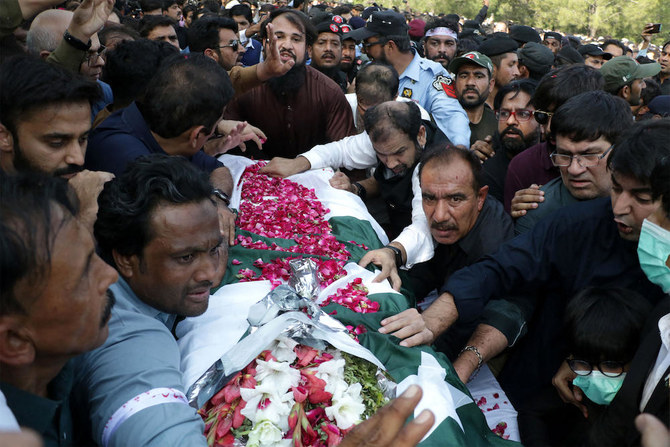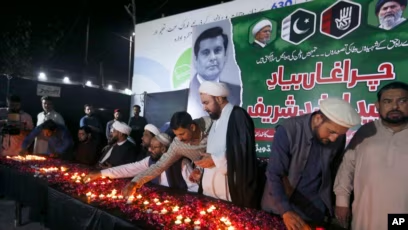
A Kenyan court has ruled that the 2022 shooting death of Pakistani journalist Arshad Sharif by police in Nairobi was unlawful and unconstitutional. The verdict, delivered by Justice Stella Mutuku in Nairobi on Monday, marks a significant development in a case that has drawn international attention and raised concerns about press freedom and police accountability.
The court’s decision not only deemed the shooting unlawful but also criticized Kenya’s attorney general and the director of public prosecutions for their laxity in investigating the incident. This ruling comes in response to a case filed by Sharif’s widow, Javeria Siddique, in collaboration with Kenyan journalists’ unions.
Sharif, a 50-year-old journalist, had fled Pakistan earlier in 2022 to avoid arrest on charges of maligning Pakistan’s national institutions. His death on October 23, 2022, occurred when police opened fire on his vehicle at a roadblock checkpoint near Nairobi. The incident initially sparked controversy, with Kenyan police initially attributing the shooting to “mistaken identity” during a search for a similar car involved in a child abduction case.

However, Sharif’s family has accused an elite Kenyan police unit of intentionally killing the journalist. This claim gained further credence when a panel of Pakistani investigators concluded in December 2022 that Sharif’s death was a “planned assassination.” Their report suggested that the fatal bullet was fired from either inside the car or at close range, contradicting the initial police account.
In a significant move, the Kenyan court has ordered the government to compensate Sharif’s family with 10 million Kenyan shillings (approximately $78,000). Additionally, the court has directed Kenyan authorities to conclude their investigation into the officers involved in the shooting. To date, none of the police officers linked to the incident have been arrested or charged.
Dudley Ochiel, the lawyer representing Sharif’s widow, hailed the ruling as “a big win for the man’s family and friends in Kenya, Pakistan and all over the world.” Ochiel expressed his expectation that the public prosecutor would now file a case against the two officers suspected of fatally shooting Sharif at the roadblock.

The killing of Arshad Sharif sent shockwaves through Pakistan, with thousands attending his funeral. The Pakistani government has maintained that no state institution was involved in his death, a claim that continues to be scrutinized in light of the ongoing investigations and court rulings.
Javeria Siddique, while acknowledging that the ruling cannot bring her husband back, expressed satisfaction that “at least now everyone knows that he was killed intentionally.” Her statement underscores the importance of this ruling in seeking justice and transparency in a case that has raised questions about cross-border politics, press freedom, and police conduct.
This court decision not only provides a measure of closure for Sharif’s family but also sets a precedent for holding law enforcement accountable for extrajudicial killings. It highlights the ongoing challenges faced by journalists working in politically sensitive environments and the importance of international cooperation in investigating crimes against members of the press.
As the case continues to unfold, with expectations of further legal proceedings against the involved police officers, it remains a focal point for discussions on press freedom, state accountability, and the safety of journalists operating across international borders.
The Associated Press



